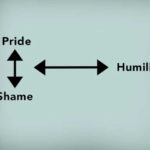We run our website the way we wished the whole internet worked: we provide high quality original content with no ads. We are funded solely by your direct support. Please consider supporting this project.

Spiritual Warfare: What is it?
The Kingdom is “not of this world,” and neither is its warfare. Jews had always believed that God confronted spiritual opposition in carrying out his will on earth. In the Old Testament, these evil forces were usually depicted as cosmic monsters and hostile waters that threatened the earth. For a variety of reasons this belief in spiritual warfare intensified significantly in the two centuries leading up to Christ.
This intensified understanding of evil and this new view of history is commonly referred to as the “apocalyptic” worldview. The authority ascribed to Satan in the New Testament, the frequent depictions of illness and deformities as demonically caused, and the general characterization of this present epoch as evil and as approaching its end all reflect this worldview.
We find references to Satan, rulers, principalities, powers and authorities, along with dominions, cosmic powers, thrones, spiritual forces, elemental spirits of the universe, gods, and a number of other spiritual entities. For short, I’ll just call them “Powers.”
Understanding this worldview helps us see that Jesus’ radically countercultural ministry wasn’t first and foremost a form of social and political protest, though it certainly was that. It was, rather, most fundamentally a form of spiritual warfare.
This apocalyptic context makes it clear that Jesus’ deliverance ministry wasn’t the only way Jesus confronted evil. Every aspect of the Kingdom of God Jesus manifested revolted against a corresponding aspect of the kingdom of the Powers. In Jesus, and in the movement he came to establish, the long expected apocalyptic battle between God and the Powers was—and still is—being waged.
When Jesus revolted against the oppressive religion of his day, for example, he was engaging in warfare against the Powers that use religion to oppress people. So too, when Jesus refused to live in accordance with his culture’s assumptions, laws, and social taboos regarding nationalism, race gender, class, and wealth, he wasn’t just waging a social protest; he was engaging in warfare against the Powers that oppress people.
Paul reflects this point when he informs us that “our struggle is not against flesh and blood, but against rulers, against the authorities, against the powers of this dark world and against the spiritual forces of evil in the heavenly realms.” From a Kingdom perspective, if it’s got “flesh and blood”—if it’s human—it’s not our enemy. To the contrary, if it’s got “flesh and blood” it’s someone we’re commanded to love and thus someone we’re to be fighting for—even if they regard us as their enemy.
The primary way we wage war on behalf of others, including our enemies, is by imitating Jesus and refusing to buy into any aspect of the Powers’ oppressive regime—including the universal tendency to make other people our enemies. Whereas earthly wars are fought with pride, strength, and violence, the Kingdom war is fought in humility, weakness and love. Any aspect of our own life, our society, or our global community that is under the Power’s influence and is inconsistent with the loving reign of God as revealed in Jesus is something that we are called to revolt against.
—Adapted from Myth of a Christian Religion, pages 30-32
Image by h.koppdelaney via Flickr
Category: Q&A
Tags: Humility, Jesus, Kingdom Living, Love, Myth of a Christian Religion, Satan, Spiritual Warfare
Topics: Spiritual Warfare, Cosmic Conflict
Related Reading

Listening with Humility and Love
Bindaas Madhavi via Compfight Robert Martin over at Abnormal Anabaptist published an article today concerning the recent post by the Gospel Coalition. The Gospel Coalition seems to be humbly acknowledging that maybe they have something to learn from Anabaptists. Martin notes that many Anabaptists have responded with something along the lines of “Yay! It’s about…

God’s Ways Are Higher Than Ours
A frequently quoted passage from the Old Testament comes from Isaiah 55. It reads: …my thoughts are not your thoughts, neither are your ways my ways… As the heavens are higher than the earth, so are my ways higher than your ways and my thoughts than your thoughts (vss. 8-9). I’ve often heard this passage…

Does God Have a Dark Side?
In the previous post, I argued that we ought to allow the incarnate and crucified Christ to redefine God for us rather than assume we know God ahead of time and then attempt to superimpose this understanding of God onto Christ. When we do this, I’ve argued, we arrive at the understanding that the essence…

Our Insatiable Hunger
The only kind of life animals care about is biological. If their basic physical needs for food and shelter are met, they’re satisfied. Humans also want their basic physical needs met, of course, but that isn’t enough. We hunger for more. Not only do we want to be alive, we want to feel fully alive.…

Why Bart Ehrman Doesn’t Have to Ruin Your Christmas (Or Your Faith) Part 4
This is the fourth of several videos Greg put together to refute Bart Ehrman’s claims published in the article What Do We Really Know About Jesus? We hope you’re enjoying these! They really provide a great overall approach to Biblical Criticism. If you missed the first three installments you can find them here, here and here.

Podcast: Confident Humility
The tables are turned. Greg interviews Dan Kent on his new book: “Confident Humility: Becoming Your Full Self Without Becoming Full of Yourself.” Available for pre-order now. Episode 472 The Interview: http://traffic.libsyn.com/askgregboyd/Episode_CH_0472.mp3 ————— A Rebuttal Considered: http://traffic.libsyn.com/askgregboyd/Episode_CH_0472_EXTRAs.mp3
